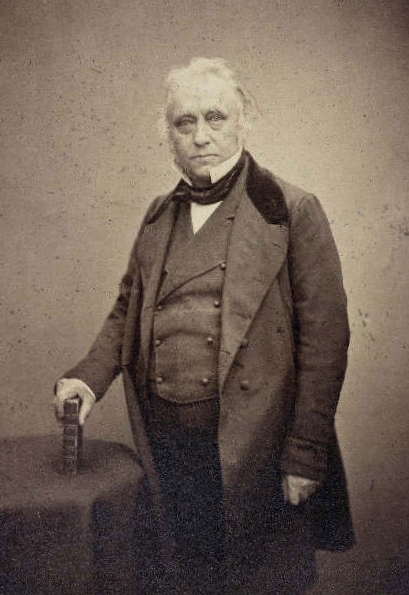Thomas Babington Macaulay, 1st Baron Macaulay Quotes
"Leigh Hunt" (1841), in Critical...Essays 2:509
Attributed
From Edinburgh Review, 1830
Attributed
http://www.baen.com/library/palaver4.htm
Attributed
Horatius, st. 60
Lays of Ancient Rome (1842)
Essay on Mitford's History of Greece (1824)
Attributed
Letter to his Niece (15 September 1842)
Essay on Mitford's History of Greece (1824)
Critical and Historical Essays: Volume II (London: J. M. Dent and Sons, 1907), p. 180
On Milton (1825)
Minute on Education http://www.columbia.edu/itc/mealac/pritchett/00generallinks/macaulay/txt_minute_education_1835.html (1835)
Review of a life of William Cecil, 1st Baron Burghley by Edward Nares, Edinburgh Review, 1832)
Attributed
"Essay on Ludwig von Ranke's 'History of the Popes', in "Critical and Historical Essays", iii, (London; Longman, 7th Edn. 1952), 100-1.
Attributed
The Battle of Naseby http://www.bartleby.com/246/74.html (1824)
“The Chief Justice was rich, quiet, and infamous.”
On Warren Hastings (1841)
“Your Constitution is all sail and no anchor.”
Letter to H.S. Randall, author of a Life of Thomas Jefferson (23 May 1857)
Vol. V, ch. 23
History of England (1849–1861)
Speech https://api.parliament.uk/historic-hansard/commons/1833/jul/10/east-india-companys-charter#column_536 in the House of Commons (10 July 1833)
1830s
Vol. II, ch. 10
History of England (1849–1861)
Minute on Education http://www.columbia.edu/itc/mealac/pritchett/00generallinks/macaulay/txt_minute_education_1835.html (1835)
Minute on Indian Education (1835)
Letter written to his father in 1836. Quoted in Indian Church History Review, December 1973, p. 187. Partially quoted in Goel, S. R. (2016). History of Hindu-Christian encounters, AD 304 to 1996. Chapter 13. ISBN 9788185990354 . Quoted from Koenraad Elst, The Argumentative Hindu (2012) Chapter 3
"From his Speech in Parliament on the Government of India Bill, 10 July 1833. Quoted from Koenraad Elst, The Argumentative Hindu (2012) Chapter 3
Speech in the House of Commons (24 June 1853) https://api.parliament.uk/historic-hansard/commons/1853/jun/24/government-of-india-bill-adjourned#column_758
1850s
I laughed so convulsively that the other people who were staring at the books took me for a poor demented gentleman. Alas for poor David!
Journal entry (8 March 1849), quoted in George Otto Trevelyan, The Life and Letters of Lord Macaulay, Volume II (1876), p. 253
1840s
Speech to his committee at Leeds after the Reform Bill had received the Royal assent (1832), quoted in George Otto Trevelyan, The Life and Letters of Lord Macaulay, Volume I (1876), pp. 283–284
1830s
Speech in the House of Commons (2 March 1831) https://api.parliament.uk/historic-hansard/commons/1831/mar/02/ministerial-plan-of-parliamentary-reform#column_1204 in favour of the Reform Bill
1830s
Speech in the House of Commons (5 April 1830) https://api.parliament.uk/historic-hansard/commons/1830/apr/05/the-jews#column_1313 in favour of Robert Grant's Jewish Disabilities Bill
1830s
Speech to a meeting of the Anti-Slavery Society held at Freemasons' Tavern (25 June 1824), quoted in Report of the Committee of the Society for the Mitigation and Gradual Abolition of Slavery Throughout the British Dominions, Volume I (1824), p. 77
1820s
